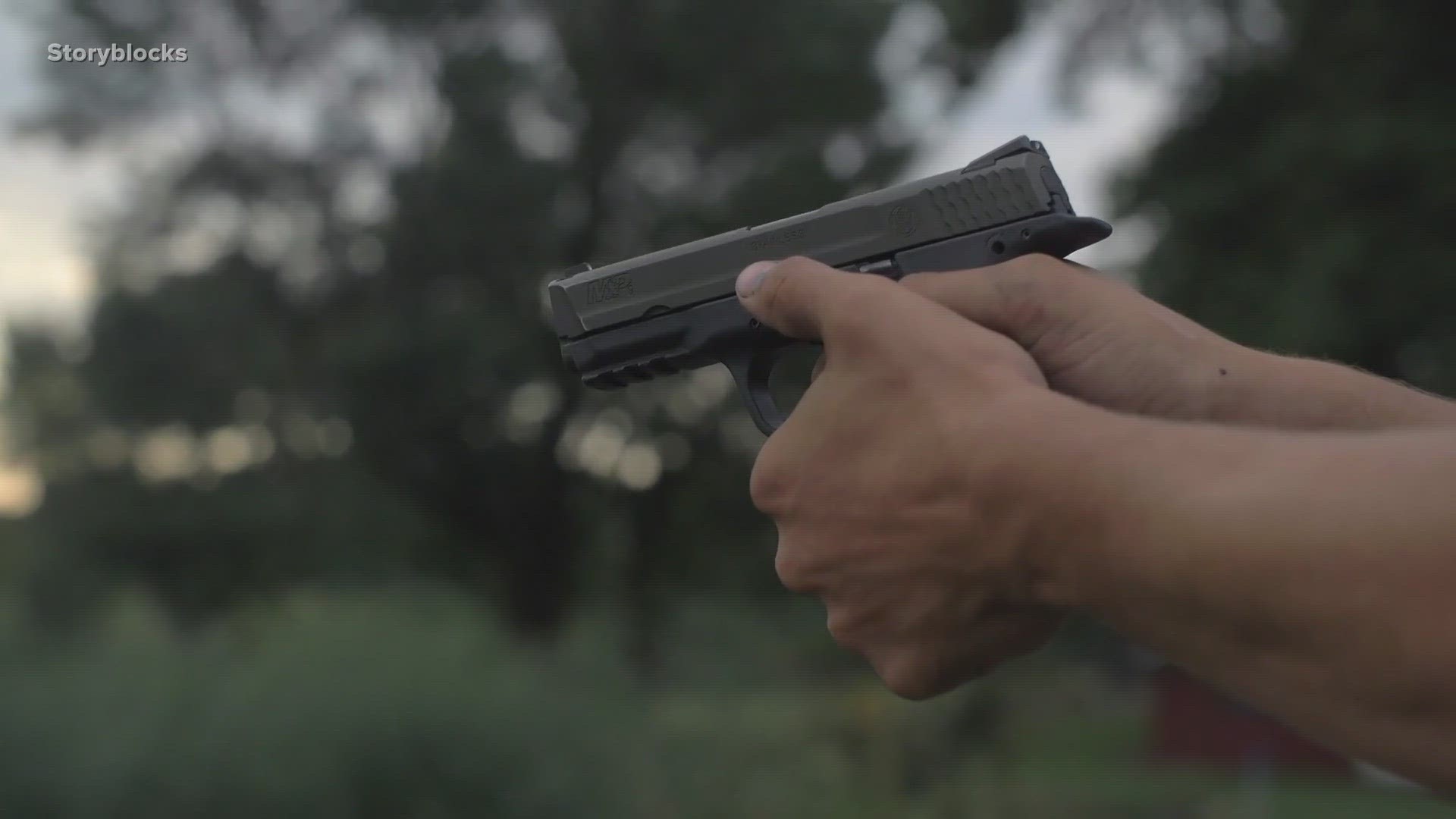TEXAS, USA — Protecting their homes is something many Texans take very seriously. However, the laws surrounding what you are allowed to do to protect your property can be complicated. One question many people ask is if you are allowed to shoot someone trespassing on your property.
6 News Reporter Sydney Dishon spoke with Legal Analyst Liz Mitchell, who cleared up misconceptions about Texas laws.
Q (Dishon): What are the laws when it comes to shooting somebody who may be trespassing? What can people do legally to protect themselves?
A (Mitchell): When we're talking about self-defense, defense of others and defense of property in the state of Texas, we are referring to something called the Castle Doctrine. A way to think about that is our home is our castle, and we have a right to protect it. There is no duty to retreat in the state of Texas, meaning I'm not legally obligated to run and try to flee a situation if someone is using force to enter my home.
Q: What are some of the misconceptions surrounding this law?
A: It is not a green light to just go ahead and shoot anyone that is trespassing in your property or on your property. The law is always going to look at your actions and whether or not they were reasonable. Did the person reasonably believe that their life was in imminent danger, immediate danger? Whether or not someone was entering your home, your habitation, your workplace, your vehicle, with force. Were they breaking a window, were they picking a lock, were they forcibly trying to enter your property? All of those things are going to justify matching that force with the use of deadly force. Now, big difference: if someone is simply criminally trespassing. Walking across your lawn, jumping your fence in the middle of the day. Did you feel in that situation that you're in immediate, imminent danger? More than likely not. Now you can threaten someone with deadly force saying, 'Get off my property or I'm going to shoot you.' However, there are so many caveats when it comes to this. When we're talking about something, such as criminal trespass; someone walking across your yard, hopping your fence; you may use force to remove them, physically remove them from your property. However, there are very few situations that are going to arise where the use of deadly force would be justifiable in that situation. The court is going to look at other things that determine whether or not you're justified in using deadly force. Did you have a legal right to be on the property in the first place? Is it legally your home, is it your spouse's home or your boyfriend's or girlfriend's home? A friend's home in which you were invited? So first and foremost, did you have a legal right to be there on the property? Secondly, did you provoke the situation to begin with? Did you instigate a fight? Has this been someone that you've been yelling, threatening back and forth? Are you the initial instigator? And finally, and sometimes, most importantly, if you're engaged in criminal conduct, you are not protected under the Castle Doctrine. There's many situations the law can actually be quite complicated. A lot of people think you know, it's a get-out-of-jail-free card to shoot anyone who steps foot on your property, but the law is very clearly not a get-out-of-jail-free card to shoot anyone who's simply trespassing.
Q: So if somebody happens to hop your fence, you can't just shoot them?
A: Correct. And let's say, even if your actions were found justifiable, that doesn't mean that you can't be tried in a civil forum if someone feels like your actions were excessive. Each circumstance is looked at one by one. But I think it's important to note that if you are protecting yourself, protecting other people or protecting your property within your habitation, and you feel your life is in imminent danger from deadly force or, you know, other violent crimes, then yes, the use of deadly force would be justified. However, criminal trespass, criminal mischief, things like that are generally not going to rise to the threshold in which deadly force is justifiable.
Q: Anything else people should keep in mind?
A: I think the overall message would be there is a common misconception that the Castle Law is a free path to shoot anyone who steps foot on your property. The law is very, very clearly not aimed at that.
More from 6 News:

